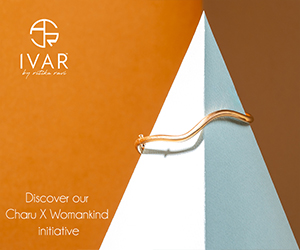
by Julia Szabo
“A beverage as black as ink, useful against numerous illnesses… Its consumers take it in the morning.” That’s how the German physician, botanist and plant-medicine pioneer Leonhard Rauwolf described coffee in the 16th century, after a decade-long voyage in the East. Today, after many years of dire warnings about coffee’s health risks (i.e., stiffening arteries and raising blood pressure), his fellow physicians are again touting the aromatic drink’s perks. Studies have shown that coffee may protect against Parkinson’s disease, type 2 diabetes, and liver diseases, including liver cancer—in addition to increasing circulation and cognitive function, while decreasing depression.
Too good-for-you to be true? Science confirms that America’s favorite beverage is, in fact, so high in antioxidants, it’s actually the most—if not the only—healthful part of the standard American diet. But how much people may safely enjoy depends on their individual reactions to caffeine. Even people in peak physical shape should avoid overdoing it. “Consuming too much caffeine can burn out the adrenal glands and overtax your body,” warns Josh Axe, a doctor of chiropractic medicine and natural medicine, and a clinical nutritionist. “But if you’re generally healthy and don’t have an autoimmune or other chronic disease, it’s fine to consume coffee in the morning or before lunch. The life of caffeine can be around 12 hours, so it can affect your sleep cycle.”
Axe adds another caveat: “When buying coffee, you must buy organic, because coffee is one of the most highly sprayed plants in the entire world today.” Conventional coffee carries a heavy pesticide load, because plants grown in full sun come under constant attack from insects and invertebrates, and all those chemicals wind up in your morning brew. They also destroy bird populations. The Smithsonian Migratory Bird Center raises awareness of sustainably harvested, shade-grown coffee, which permits greater biodiversity than full-sun cultivation.
Coffee is a crop that can be stored up to a year; as such, it’s a magnet for mold, which produces the dangerous chemicals called mycotoxins. Happily, the coffee industry has adopted widespread use of wet processing, which effectively eradicates most molds and their mycotoxins; roasting, meanwhile, reduces mycotoxins by about 50 percent. Over-roasting can reduce coffee’s antioxidant potency, so it’s best to opt for a light or medium roast.
Reducing mud’s toxin burden is a priority for enlightened coffee brands. Mayorga Organics of Maryland committed to selling only organic coffee 20 years ago. Since 2008, Birds and Beans Coffee has offered shade-grown, organic coffee that’s certified Smithsonian Bird Friendly. Bulletproof, the Seattle-based company founded by biohacker Dave Asprey, tests its beans for mycotoxin contamination, as does Purity Coffee of Greenville, South Carolina.
More and more, informed coffee connoisseurs are choosing beans of arabica, the more delicate coffee plant grown at higher altitudes, over robusta, the stronger, less-flavorful species. (“Arabica also tends to have less caffeine than its robusta cousin,” says Dr. Tieraona Low Dog, founder of Wildcrafter, organic coffee infused with superherbs tested for more than 300 herbicides and pesticides.)
To maximize coffee’s health benefits, opt for plant milks and/or nutriceutical add-ins such as Superfood Creamer, a product of Laird Superfood, the company started by surfing superstar (and coffee connoisseur) Laird Hamilton. These dairy-free, soy-free powders boost any brew with ingredients ranging from maitake mushrooms to Madagascar bourbon vanilla. And if you care to cushion your adrenals, choose a medium roast pre-loaded with protection, such as Four Sigmatic’s Adaptogen Coffee with ashwagandha and tulsi.








